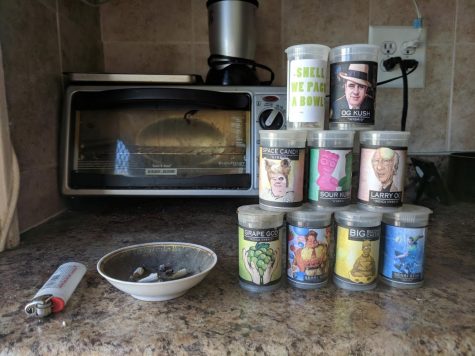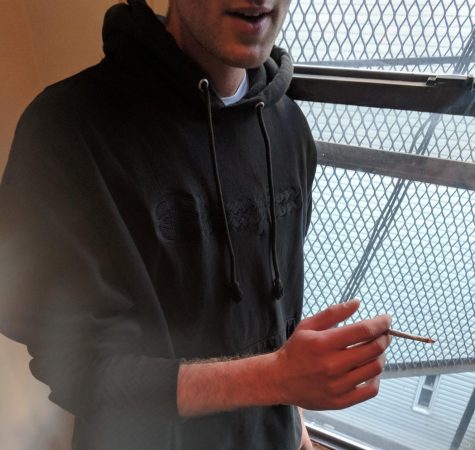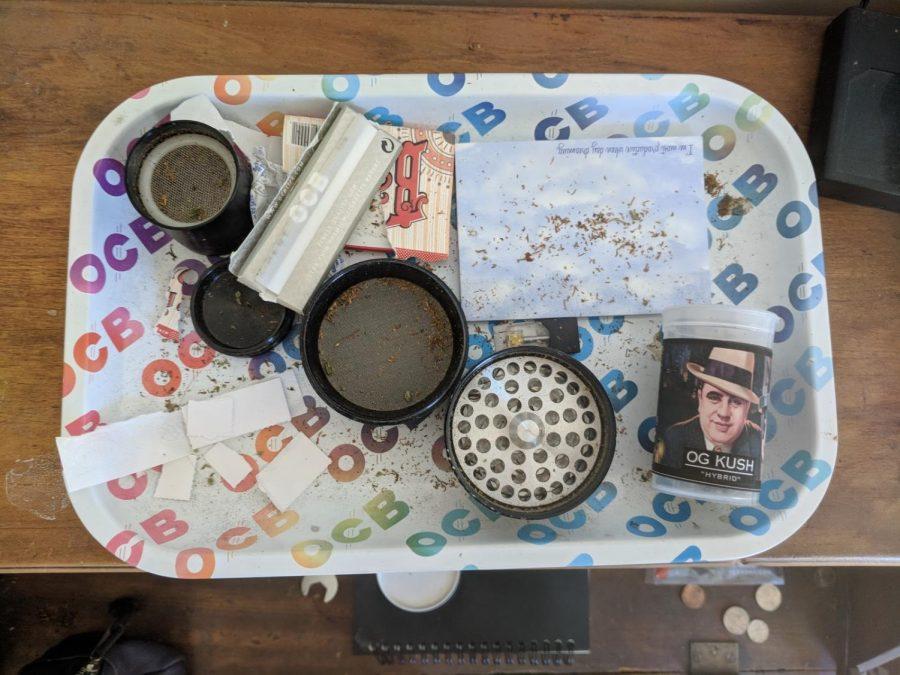An Already Digitized Weed Culture Reckons With Possible Legalization
Vaping and encrypted delivery services are just a few products of the crossover between tech and weed, but what will happen when full legalization opens up pot to the frenzy of disruption and market forces ?
April 24, 2018
Last Friday, Mark Kleiman, professor of public policy at NYU’s Marron Institute published an op-ed in Vox titled, “How to prevent casual pot smokers from slipping into abuse and dependence,” to coincide with April 20 — the informal holiday dedicated to celebrating and smoking weed — and to pump the brakes on the idea that simple marijuana legalization presents a cure-all.
For the better part of a century, marijuana has permeated American culture like smoke through a wool blanket. Recent changes in the political landscape, however, have altered the legal superstructure around marijuana and unleashed a flood of investor capital and media attention onto the formerly taboo industry.
Kleiman writes that although objectively less harmful than alcohol, legal weed now faces many of the same regulatory pitfalls that have allowed alcohol to become such a destructive societal force.
“We’ve created a machinery where people can get rich by exploiting other people’s bad habits,” Kleiman told WSN over a phone interview.
Left to their own devices, Kleiman said lawmakers are likely to recreate those same conditions for cannabis.
Alongside high taxes and restrictions on marketing, Kleiman proposed a system of self-regulation in which consumers set the amount of THC — the chemical compound in marijuana responsible for the high — they’re comfortable consuming in a given period. He sees a new wave of weed-related tech as a boon to just such a system.
“We need a drink equivalent for cannabis, and if vaporization provides that, that’s great,” Kleiman said.
For those using the drug, edibles, concentrates and vapes are already gaining popularity.
“Smoking is a taboo form of ingestion to begin with, so vapes help to normalize the form of ingestion to make it more acceptable,” Clyde, a courier for a popular weed delivery firm NYU students buy from, told WSN in an interview.
While most of his clients still prefer typical marijuana flowers, Clyde said he sees non-combustible THC as an expanding market, including among NYU students.
“I do feel like vapes, concentrates, being able to change your intake based upon a little pod is definitely something I could see society moves towards,” he said.

Clyde sells a variety of cannabis products to NYU students and others around Manhattan.
The service Clyde works for uses a peer-to-peer encrypted messaging app to securely link a network of dealers to clients. Josh, a self-described daily smoker and Gallatin junior, relies on this app-based form of picking up.
“It’s basically like having a dispensary come to your house, which is pretty lit,” he said.
JJ Nozell, a Gallatin junior and former smoker, also said the marriage of encryption tech and recreational drugs has broad appeal in his experience. “In New York certainly,” he said “And London, and Paris as well.”

“Josh” smoking some of the product.
“They have a system in place that’s very regulated and when the people arrive to your door they have the same product,” Nozell said of Clyde’s firm. “It gives the impression of accuracy and legitimacy and reliability that I think any customer consuming anything desires.”
Kleiman sees legalization as an opportunity for brands to tap into consumer’s desires more effectively with help from full corporate coffers.
“It’s more likely than not that we get advertising and branding,” Kleiman said, stressing the need for brands to differentiate themselves from competitor. “That’s the beer market, that’s the cigarette market.”
Once legal weed is ubiquitous, brands will have a ready reservoir of clandestine smokers to try and convert.
“It’s really everyone,” Clyde said. “One thing you learn from this job is absolutely everyone smokes.”
Clyde said he’s sold marijuana products to well-known television hosts and office workers at the top of the Empire State Building. He has doubts about the practicality of a self-regulation scheme like the one Kleiman proposes though agrees that some regulation would be a good thing.
“I think if people are already smokers that are getting into it, they’re going to already know their limits,” Clyde said.
Kleiman accepts these critiques but doesn’t think they detract from a user-set regulatory scheme.
“All I claim is that it’s likely to do some good and essentially no harm,” he said.
With corporate interests already gaining a sizeable foothold in the nascent legal weed industry, it’s important to break the model of creating addicts to drive sales.
“Only people who are using more cannabis than they would set themselves as the amount they want to use, keeps these guys in business,” Kleiman said.
While the black market still dominates, at present people are not subjected to widespread advertisement for marijuana. According to Clyde, at least his clients still use in moderation.
“I don’t feel like I go to anyone where I give them an eighth and I feel like ‘damn, I’m ruining your life,’” Clyde said.
But as the industry opens to corporate advertisers, Kleiman foresees sweeping changes.
“We’ll get to the point where there’s social pressure to use [marijuana],” he said, “Just as there’s social pressure to drink.”
Note: The names of the the drug dealer and one of the consumers were altered to protect their identity.
Email Jonah Inserra at [email protected].


























































































































































